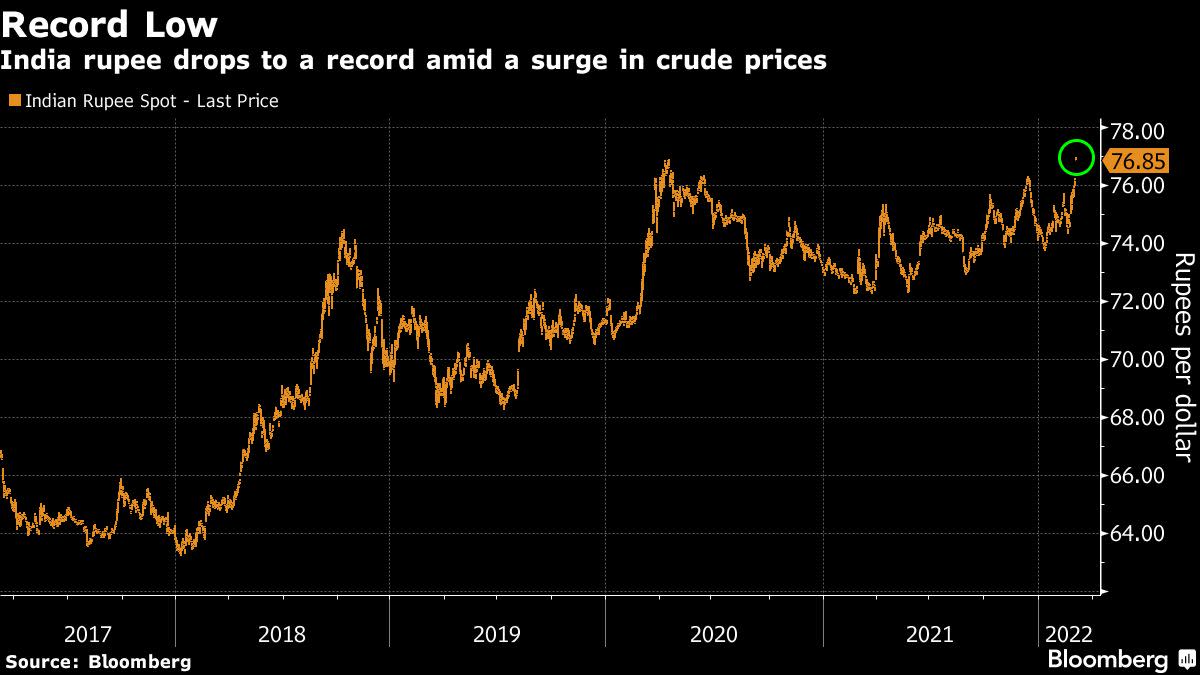Rupee Sinks to Record Low as India Markets Sell off on Oil Surge

(Bloomberg) — The Indian rupee tumbled to a record low, while stocks and bonds also slumped as a relentless surge in oil prices darkened the nation’s economic outlook.
Most Read from Bloomberg
India’s relies on overseas purchases to meet about three-fourths of its oil requirement, making it one of the most vulnerable in Asia to higher oil prices. Oil prices, already up more than 60% this year, may worsen price pressures , hurt the nation’s finances and upend a nascent economic recovery.
“For decades now, crude has remained the number one risk for India given its high dependence on the imported fuel,” said Srinivas Rao Ravuri, chief investment officer at PGIM India Asset Management Pvt. “The escalating geopolitical tensions, crude and the imminent Fed hike have impacted investor sentiment toward emerging markets, especially India, which until recently was trading at premium valuations to its peers.”
The rupee declined as much as 1.1% to 76.9812 per dollar on Monday. Benchmark government bond yields rose eight basis points to 6.89%, while the S&P BSE SENSEX Index fell to the lowest since July.
Today’s move has turned the rupee into Asia’s worst performer this year. The benchmark yield is headed for the biggest daily jump in over a month.
“Geopolitical risks will likely stay elevated, especially on the terms of trade shock and current-account deficit implications,” Barclays Plc. analysts including Ashish Agrawal wrote in a note. “The INR is more sensitive to supply side oil shocks,” he said, adding that the Reserve Bank of India “is likely to continue selling USD passively, but is unlikely to defend any particular level.”
Foreign funds have taken out about $16 billion from India’s equity markets since September. The initial share sale of Life Insurance Corp., widely referred to as India’s Aramco moment, is also increasingly likely to be deferred given the volatile geopolitical conditions.
Traders were expecting $5 billion-$6 billion of inflows from the share sale, which would have provided some support to the currency.
The average yield on top-rated 10-year company notes are up as much as 7 basis points on Monday, according to traders. That’s the most since Feb. 10, according to data compiled by Bloomberg
“People may want to bury their heads in the sand and wish for it to go away, but in times like these, if markets manage to even offer no returns, it will be a great outcome,” said Abhay Agarwal, fund manager at Mumbai-based Piper Serica Advisors Pvt.
(Updates with corporate bond yields in the ninth paragraph.)
Most Read from Bloomberg Businessweek
©2022 Bloomberg L.P.




